Eric Winslow Stone
Eric Winslow Stone is a reporter, editor, photographer and audio producer based in Ketchikan, Alaska
Takatz Bay, Baranof Island, Alaska
SELECTED WORK
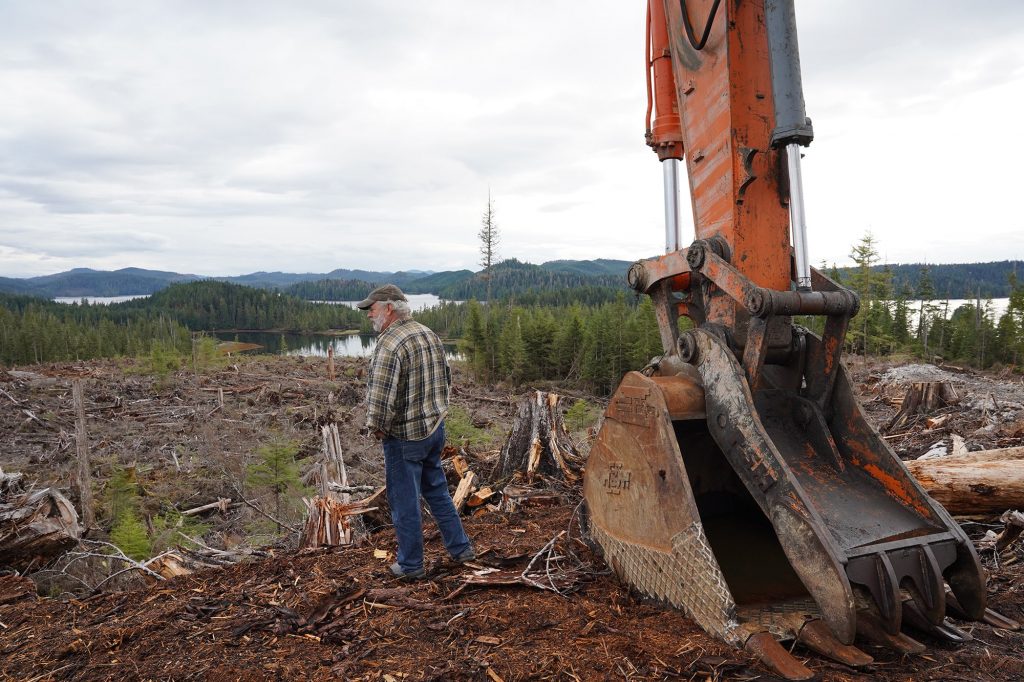
The Roadless Rule is supposed to protect wild places. What went wrong in the Tongass National Forest? – Grist, CoastAlaska, Earthrise Media, Pulitzer Center
In 2021, reporters at CoastAlaska, Grist and Earthrise Media collaborated with the Pulitzer Center to shed light on a little-known loophole that allows an Alaska state agency to get around federal protections on old growth timber.
As my colleagues pored over satellite footage and timber harvest plans, my job was to visit Prince of Wales Island and put a face on the problem.
I met Mark Figelski, left, at a community meeting in the hamlet of Naukati Bay. Figelski told me he feared the immense clear-cuts in his backyard threatened his ability to feed his family with Southeast Alaska’s famous salmon, halibut and black-tail deer.
The project was honored with an Online Journalism Award for Best Feature, Small Newsroom at the 2022 Online News Association conference.
Police bodycams shed light on Ketchikan man’s death during pursuit – KRBD
A 34-year-old Ketchikan man lost his life after drowning in a creek while fleeing police. Family and friends describe a bright but troubled young man who fell into addiction. I reviewed the bodycam footage of that fateful night to recount how a routine stop by police ended in tragedy.
Brandon Larson’s sister, Brianna Gunn, told me it was clear police hadn’t forced her brother into Ketchikan Creek that December night.
“But I do think they chased him to his death. I do think that,” she said.

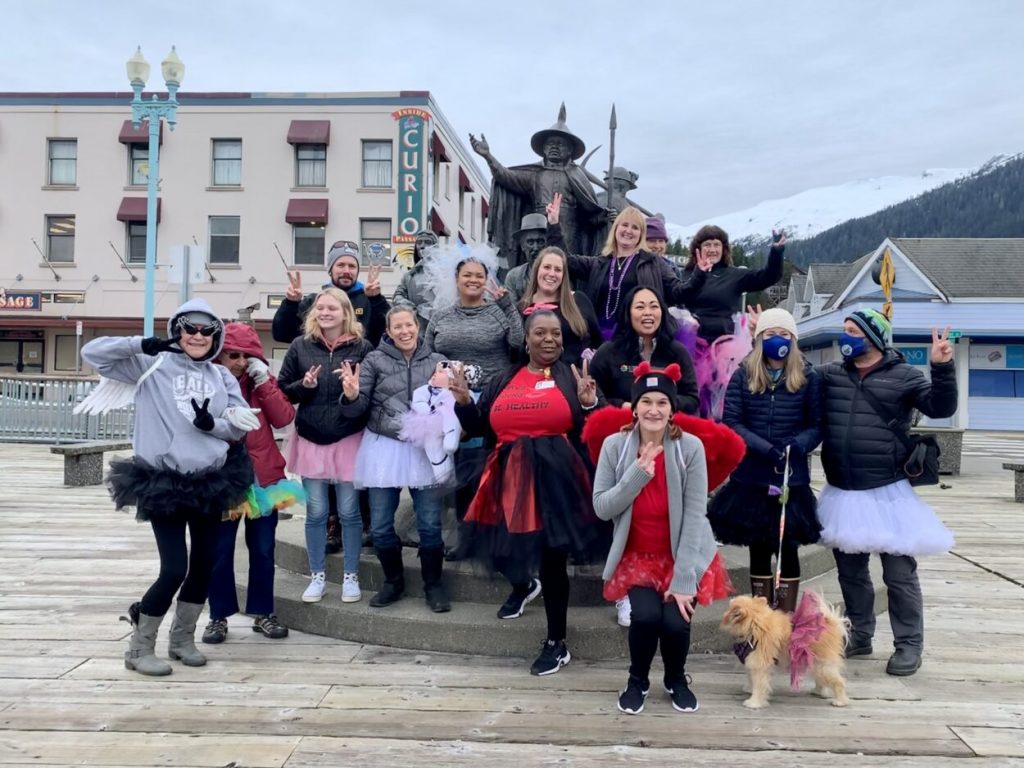
Two, two-two, two-two… tutu? Ketchikan residents celebrate a very special Tuesday – KRBD
It was February 22, 2022. Or, put another way, Tuesday, two-twenty-two, twenty-twenty-two.
A group of people in Ketchikan had gathered to mark the occasion at — when else? — 2:22.
How could they not wear tutus?
The first large cruise ship to visit Alaska in nearly two years arrived the morning of July 9, 2021, ending a pandemic-induced shutdown that devastated the economies of Southeast Alaska communities like Ketchikan.
The 965-foot cruise ship rounded Pennock Island and came into view from Ketchikan shortly after 6 a.m.
“I was just thinking that it’s awesome to see that again. Because we haven’t seen that since…” longshoreman Andy Jackson said before a pause. It had been a very long time — 21 months. 640-odd days. One and three-quarters years, if you like.
The arrival of the Royal Caribbean ship Serenade of the Seas was, more than anything, a symbol. But Sen. Lisa Murkowski (R-Alaska) said it sent a powerful message.
“It feels good to just see a big ship back, because we know that today’s visit is just just the beginning,” Murkowski said. “It’s going to be a short season, but we’re going to have a season.”
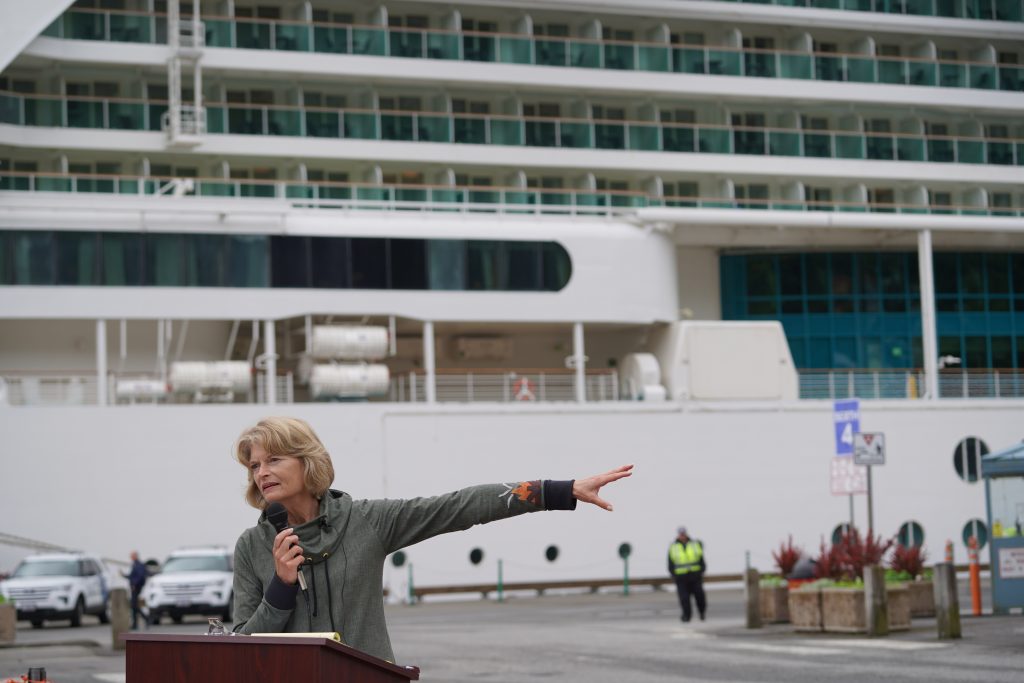
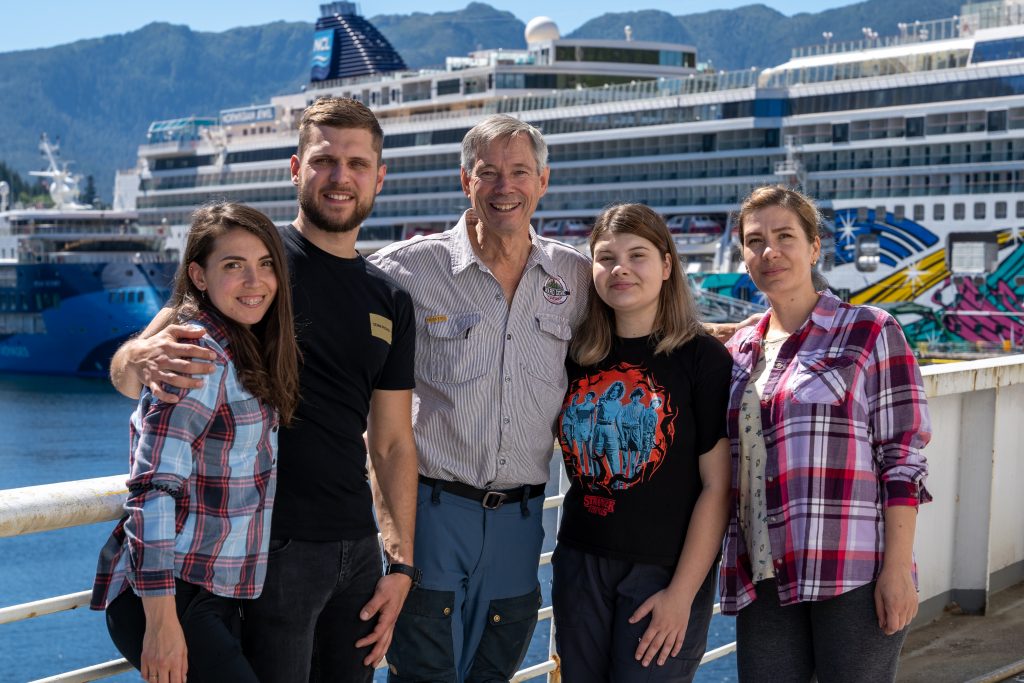
Before Russia invaded Ukraine, 29-year-old Mykyta Zakharchenko spent half a decade working on ships.
Now, he’s spending his days on another ship: the M/V Malaspina. The former Alaska Marine Highway ferry is undergoing a transformation after it was purchased by the owners of The Mill at Ward Cove, a private cruise ship terminal operating out of Ketchikan’s former wood pulp mill.
“Everything is going good,” he told me. “I like this place. I like the people around me who support me. I’m finding new friends here. And my work is very interesting — every day I study something new.”
Cruise Shutdown Leaves Southeast Alaska Without Its Economic Lifeblood – NPR
After COVID-19 led federal authorities to shut down U.S. cruises, Ketchikan’s four city-owned cruise ship berths laid quiet in 2020.
It was supposed to be a record year. More than 1.2 million cruise passengers were projected to visit.
They would have pumped $190 million into Ketchikan’s economy. Tour companies were taking reservations. Seasonal retailers had ordered their summer stocks.
Then the world changed.
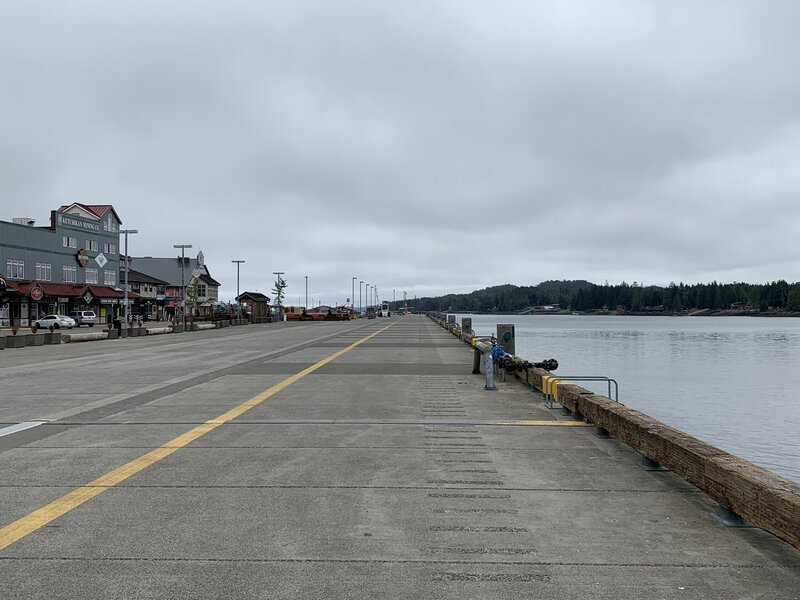
recognition
Alaska Press Club
Best Solo Journalism, 2021 – first place (portfolio award)
“Eric Stone provides a narrative shape to hard-hitting and feature stories alike, informing his readers while keeping them engaged through solid storytelling. His images add important context and life to the story. Stellar work.”
Justin Hinkley, contest judge
Best Public Safety Reporting, Audio, 2021 – second place
Best Reporting on Government or Politics, Audio, 2021 – third place
Online News Association
2022 Feature, Small Newsroom – Winner (The Roadless Rule is supposed to protect wild places. What when wrong in the Tongass National Forest?)
“Using visual effects both complex and straightforward, this feature offers a rich and compelling exploration of an issue more often treated in broad strokes. The satellite imagery and aerial photography that pack much of the explanatory force of the piece are coupled with striking portraits and character-driven moments in the text that transcend the technical, bringing the human and political dimensions of the issue into striking relief.”
Contest judge